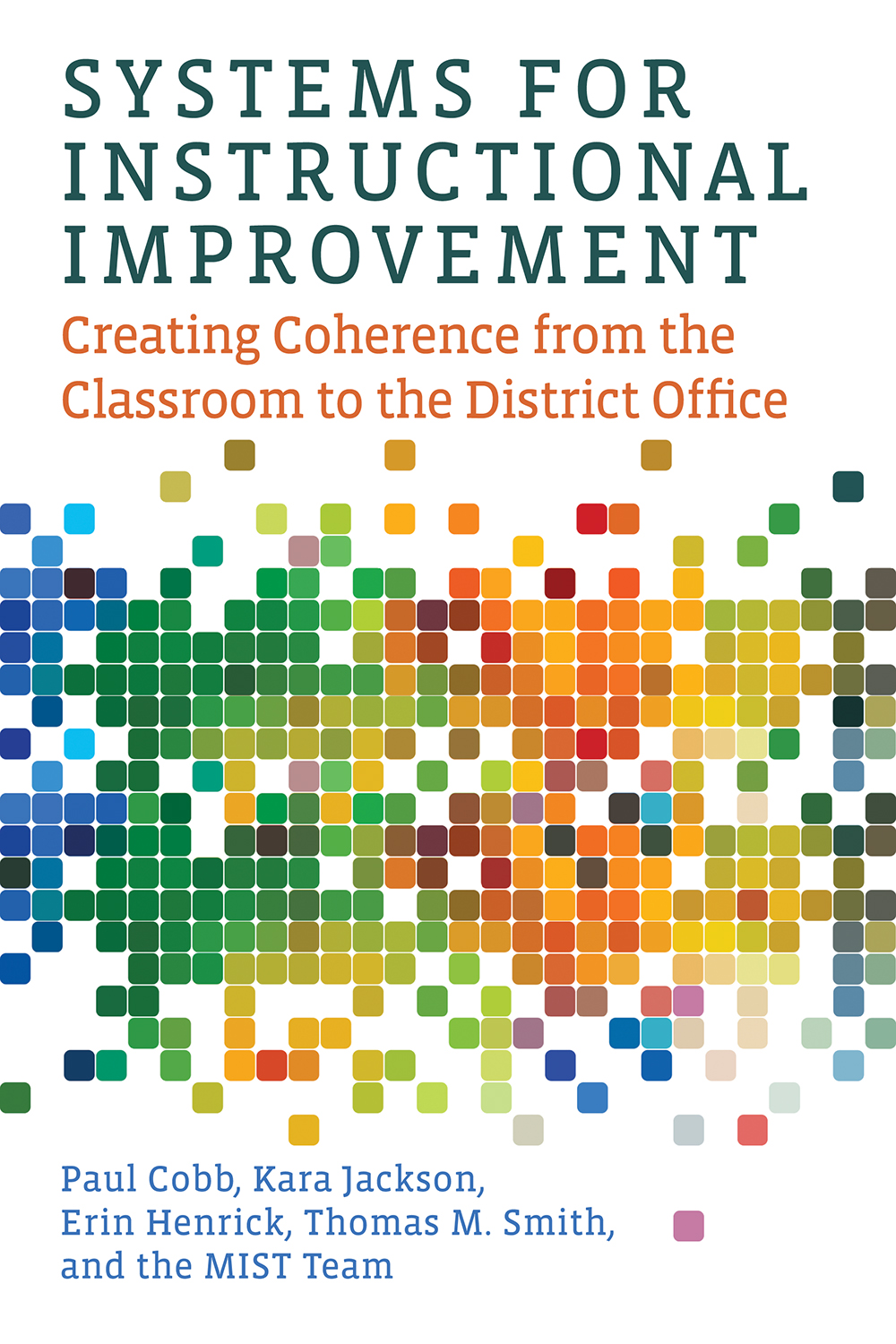MIST stands for Middle-school Mathematics and the Institutional Setting of Teaching.
MIST is an ongoing project that is investigating the following question: What does it take to support mathematics teachers' development of ambitious and equitable instructional practices on a large scale. The project has two major phases.
Phase 1
The first phase of the MIST project was conducted from 2007 - 2011 in collaboration with four large, urban districts that serve a total of 360,000 students. The districts were all implementing ambitious instructional improvement initiatives in middle-grades mathematics (three of the districts had partnered with the Institute for Learning (IFL)).
The participants were:
6-10 schools in each of 4 districts
30 middle-school mathematics teachers in each district
15-20 school and district leaders in each district
The primary product of the first phase was a provisional theory-of-action for district-wide instructional improvement in mathematics.
In addition to this product, we provided the districts with feedback each year on how their Theory of Action for instructional improvement in mathematics is playing out in their schools, and made actionable recommendations about how it might be revised to make it more effective. Sample feedback reports can be downloaded from the Dissemination page.
Funded by the National Science Foundation
Title: Designing Learning Organizations for Instructional Improvement in Mathematics
Sponsor's Award Number: ESI-0554535
Co-PIs: Paul Cobb and Thomas Smith
Phase 2
The second phase of the MIST project began in the 2011-2012 school year and involves a four-year collaboration with two of the districts that participated in Phase 1. The primary goal in this phase is to test, revise, and elaborate conjectures inherent in the theory-of-action for district-wide instructional improvement developed in Phase 1. To this end, we are collaborating with district leaders to co-design and co-lead coordinated professional development for teachers, coaches, and school leaders.
The participants are:
12 schools in each of 2 districts
60 middle-school mathematics teachers in each district
25-30 school and district leaders in each district
During Phase 2 we continue to provide feedback to districts every year on how their Theory of Action for instructional improvement in mathematics is playing out in their schools, and will continue to make actionable recommendations about how it might be revised to make it more effective.
Funded by the National Science Foundation
Title: Investigating and Supporting the Development of Ambitious and Equitable Mathematics Instruction at Scale
Sponsor's Award Number: DRL-1119122
Co-PIs: Paul Cobb, Thomas Smith, Ilana Horn, Kara Jackson, Kenneth Frank, and Erin Henrick
Rationale for Study
The research base on supporting mathematics teachers' development of ambitious instructional practices at scale is thin in both mathematics education and in policy and leadership.
Funding agencies including NSF have invested heavily in ambitious agendas for teacher professional development in mathematics. Prior large-scale improvement efforts that have attempted to penetrate the instructional core of the classroom have rarely produced lasting changes in teachers' instructional practices.
This project is examining the school and district settings in which teachers work in order to enhance the impact of professional development on classroom instruction and student mathematics achievement.
Prior NSF-funded initiatives made an important contribution by focusing on a single aspect of the institutional settings in which mathematics teachers develop and revise their instructional practices: either 1) Principals' knowledge of mathematics and their beliefs about mathematics teaching and learning; 2) The content, pedagogical, and diagnostic knowledge necessary for leaders to assist mathematics teachers effectively; or 3) Districts' use of instructional guidance tools such as pacing guidelines and alignment charts.
The primary goal of MIST is to investigate, test, and refine a set of conjectures regarding the organizational arrangements, social relations, and material resources needed to enhance the impact of professional development on mathematics teachers' instructional practices and thus student achievement. In addressing this goal, we will take a comprehensive view of the institutional setting of mathematics teaching rather than focusing on a single aspect.
The supports for teacher learning on which we are focusing include:
- A coherent instructional system comprising:
- explicit goals for students' mathematical learning, a detailed vision of high-quality instruction, and curriculum compatible with this vision
- district professional development that is organized around curriculum materials
- school-based professional learning communities (PLCs) that extend district professional development
- assessments aligned with the goals for students' mathematical learning
- additional supports for struggling students to enable them to succeed in mainstream mathematics classes
- Teacher professional networks
- Mathematics coaches' practices in providing job-embedded support for teachers' learning
- School leaders' practices as instructional leaders in mathematics
- District leaders' practices in supporting the development of school-level capacity for instructional improvement
We are using a mixed-methods research design in both phases of the project that involves both a formal hypothesis-testing component and design research component. The data we collect or have access to in each district each year enables us to document:
- The school and district settings in which the participating teachers work (i.e., the above supports)
- Teachers' instructional practices, visions of high-quality instruction, content knowledge for teaching, and views of students' mathematical capabilities
- The professional development activities in which teachers participate
- School and district leaders' instructional leadership practices, visions of high-quality instruction, and views of students' mathematical capabilities
- Student achievement.
In addition, during phase 2, we are also documenting professional development activities in which coaches and school leaders participate.

Cobb, P., Jackson, K., Henrick, E., & Smith, T. M. (2018). Systems for instructional improvement: Creating coherence from the classroom to the district office. Cambridge, MA: Harvard Education Press.
